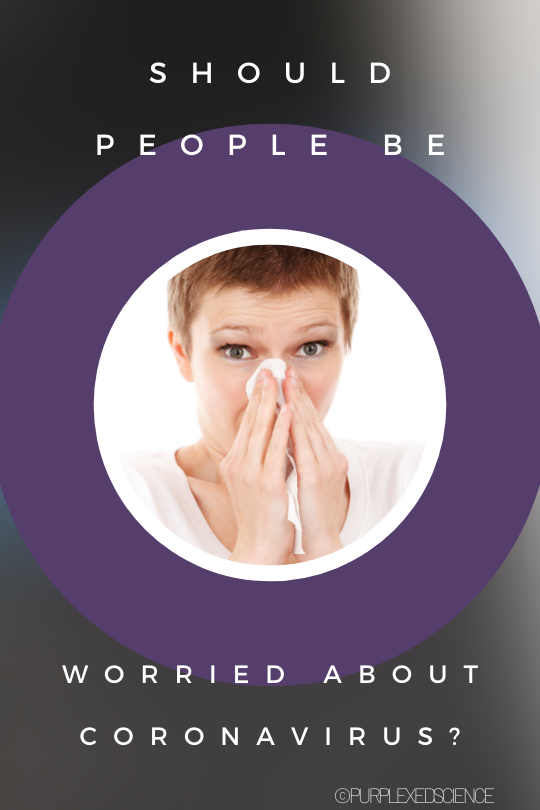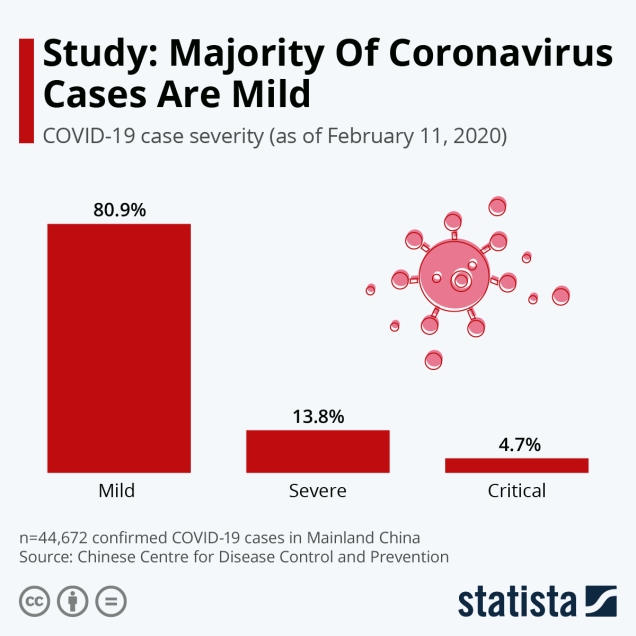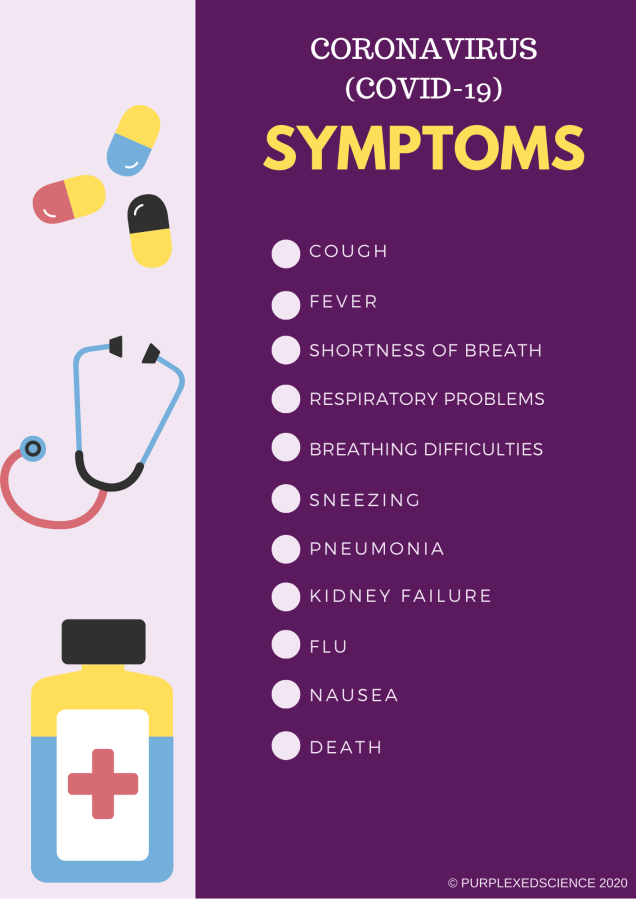
What is coronavirus?
Coronavirus is the scientific name for a group of viruses that cause things like common colds and more serious illnesses like SARS (severe acute respiratory symptom). They can be transmitted from humans to other humans or from animals to humans.
Why is it in the news today?
The coronavirus we’ve been hearing about is a new strain of the virus that nobody had come across before it struck patients in Wuhan, Hubei Province, China last year. It has now been named COVID-19 (Corona Virus Disease 2019) and as of yet, there is no vaccine. It is a serious issue now because of the rate at which it is spreading and the fact that it can be fatal.
As of writing there has been 79,000 reported cases and over 2400 deaths (you can keep up to date with the current figures here.
According to one of the first reports on Coronavirus by the Chinese Centre for Disease Control and Prevention the majority of reported COVID-19 cases are mild. However, the disease has the potential to be severe, or in worse cases – critical.

How do people catch it?

During the initial stages of the outbreak, it was thought that there was animal-to-person spread originating in seafood and live animal market. However, a lot of patients didn’t have any contact or exposure with animal markets suggesting that there is in fact person-to-person spread. This has also been the case in other countries, although it appears to be spreading easily within China which indicates that there is a very high level of person to person spread there.
Person to person spread comes about when people come within six feet of an infected patient. It is thought that people are most contagious when they’re sick. The virus is spread through airborne particles* and droplets produced by sneezing and coughing.
Although, currently the World Health Organisation doesn’t believe that COVID-19 is airborne, a research article in Environmental International states:
National authorities [should] acknowledge the reality that the virus spreads through air, and recommend that adequate control measures be implemented to prevent further spread of the SARS-CoV-2 virus.
What are the symptoms, who is most at risk and how can you stop yourself from catching it?

In order to prevent catching it one should limit exposure to surfaces in places like public transport and shopping centers and avoid close contact with sick people.
People should also:
- Avoid touching eyes, mouth and nose with unwashed hands
- Stay indoors when sick
- Cover sneezes and coughs
- Discard used tissue immediately
- Clean and disinfect with sprays
- Wash hands often with soap and water or antibacterial hand gels.
There has been a lot of talk about face masks and while they’re a good idea for those in China (and neighbouring areas) where transmission is the highest, they generally are not to be worn by well people in other parts of the world. They should be worn by those who are sick to prevent exposure and by medical professionals treating those infected.
In terms of those most at risk from COVID-19, the elderly, children, people with diabetes and weak immune systems are more likely to end up in a serious condition. However, care should be taken by ALL individuals to ensure that exposure to the virus is limited.
How do physicians test for COVID-19?

In order to test for COVID-19, samples are collected from patients through nose and throat swabs and run in a specialist PCR (polymerase chain reaction) lab. In the case of people who are severely ill, samples are taking from sputum (saliva and mucus coughed up from respiratory tract) or blood.
What is the treatment?
Currently, there is no treatment. While the infection itself cannot be treated, medication is given to patients to ease the symptoms.
Should we be worried about it?
That depends. If you have been in China (or neighbouring countries) recently and begin exhibiting symptoms – get yourself checked out. While the WHO have declared COVID-19 ‘public enemy number one’ it is not advised for people to panic. Developments are ongoing and the best action to take is to follow local health guidelines and keep informed via the news and health websites.
Future outlook

According to various sources a vaccine is six to eighteen months away meaning that for now, the best course of action is to limit the spread of the virus.

https://www.who.int/health-topics/coronavirus https://www.cdc.gov/coronavirus/2019-ncov/about/prevention-treatment.html https://wellcome.ac.uk/news/covid-19-how-researchers-around-world-are-racing-understand-virus-and-prevent-future-outbreaks http://www.emro.who.int/health-topics/corona-virus/information-resources.html https://www.statista.com/chart/20856/coronavirus-case-severity-in-china/ https://www.nhs.uk/conditions/coronavirus-covid-19/ https://www.sciencedirect.com/science/article/pii/S016041202031254X
*article edited on 14/04/2020 to clarify ‘airborne’ when describing how the virus is transmitted.



4 thoughts on “Should people be worried about Coronavirus?”